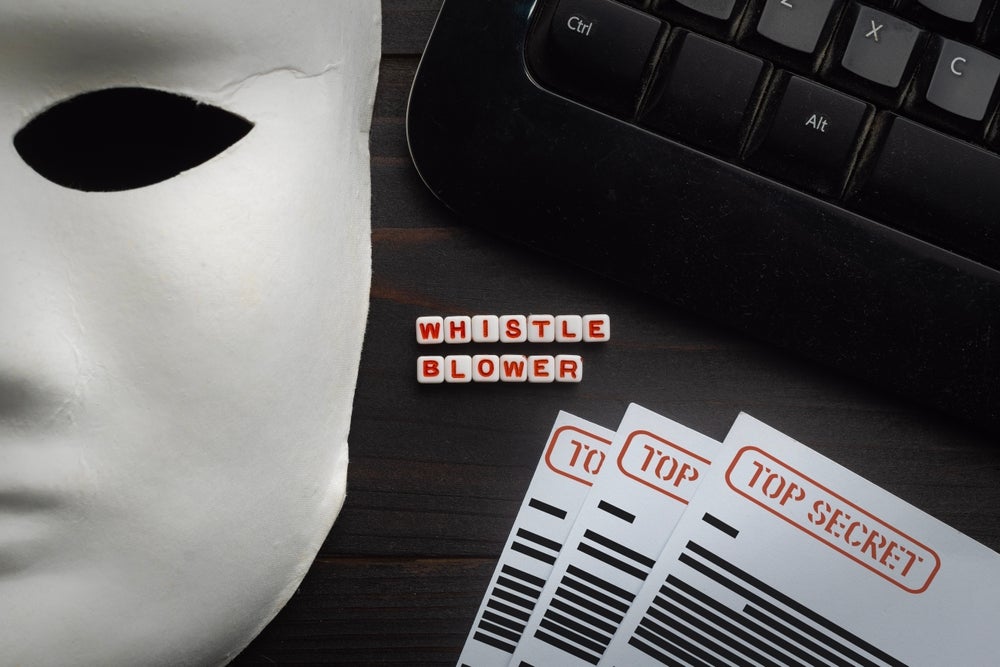Financial crime can bleed companies dry from the inside, often without a whisper of the havoc until it’s too late. Whistleblower programmes serve as an antidote, a means to voice the unvoiced, and the key to unlocking a hidden world of corporate misconduct. From spectacular implosions of once-storied corporations to silent corrections of accounts, these programs carry the weight of guardianship against wrongdoing.
Lessons from Wirecard scandal
The Wirecard scandal is a prime example of an instance where whistleblower insights were initially overlooked, with catastrophic consequences. Market participants looking at the German payment processor noticed discrepancies in the books and raised the alarm. Yet, it was years before these red flags resulted in action. In 2020, the company admitted that €1.9bn, supposed to be in trustee accounts, likely did not exist. By then, Wirecard’s meteoric rise had turned to a headlong crash, culminating in insolvency and arrest warrants for its executives. The cost to investors was monumental, and the damage to trust in financial oversight was even greater.
However, whistleblower interventions often lead to significant long-term financial benefits, as evidenced by their impact on share prices. A compelling example is Bank of America’s experience in 2013. An executive’s decision to blow the whistle on the bank’s fraudulent mortgage practices led to a $16.65bn lawsuit settlement, the largest of its kind at that time. This act of courage was pivotal in preventing further financial losses and played a crucial role in restoring the bank’s integrity. As a result, Bank of America’s share price, which reflected investor confidence, has since doubled, underscoring the tangible value of effective whistleblower systems.
This positive financial outcome starkly contrasts companies that have failed to act on whistleblower warnings. For instance, Wirecard’s share price eventually plummeted to near zero from around €100 within hours following its accounting scandal, a direct consequence of ignoring whistleblower alerts. The contrast between Bank of America and Wirecard illustrates whistleblowing’s profound impact on a company’s financial health and market valuation. In Bank of America’s case, an effective response to whistleblowing salvaged the bank’s reputation and translated into significant shareholder value, demonstrating the power of whistleblowing interventions in bolstering ethical standards and financial performance.
Whistleblower programmes: vital cog in corporate governance
These cases are cautionary tales of how whistleblower programmes, when taken seriously, can become a vital cog in the machinery of corporate governance. The Wirecard scandal shows us the perils of inaction, while the Bank of America example demonstrates the potent potential of whistleblower programmes to correct course and restore integrity.
Yet, whistleblowing is not without its challenges. Whistleblowers often face retaliation, ranging from career setbacks to legal battles. As such, the efficacy of these programs depends not just on their existence but on their execution – the ease with which concerns can be raised, the confidentiality offered to those who come forward, and the assurance of a thorough and unbiased investigation.

US Tariffs are shifting - will you react or anticipate?
Don’t let policy changes catch you off guard. Stay proactive with real-time data and expert analysis.
By GlobalDataWhistleblower programmes are far more than compliance checkboxes. They reflect an organisation’s commitment to governance, transparency and ethical operation. As seen in the instances of Wirecard and Bank of America, these programmes can be the difference between public scandal and private correction. Business leaders must prioritise creating an environment where whistleblowers are protected, valued, and, above all, heard. Only then can the silent keepers safeguard the financial fortress from within.
Pav Gill is founder & CEO, Confide









